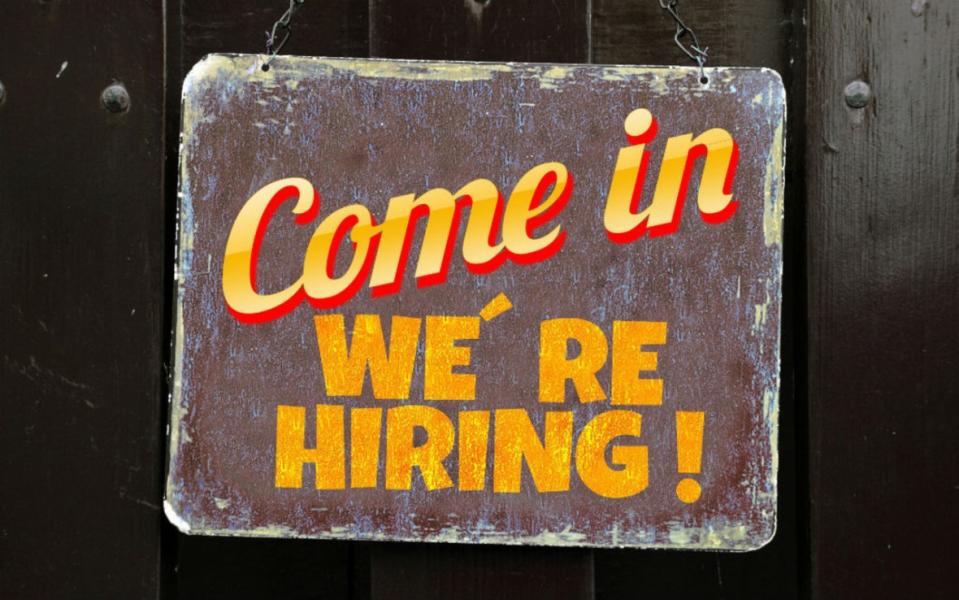Why bad recruitment strategies could cost your start-up more than a few pay checks

How do you know when you have made a good hire? Are you deploying the right recruitment strategies?
Attracting and retaining top talent can be a difficult task for many new start-ups, given that it’s far from easy to compete with large corporate salaries and benefits – especially when your main focus as founder is to mitigate costs and manage a limited budget.
However, if you dial in some of that focus on effective recruitment strategies across the board, you might just find your business – and team – in good health.
The cost of a bad hire
Poor recruitment strategies can easily cost your business more than a few paychecks.
The average cost of a bad hire is estimated to be three times higher than the salary paid. What’s more, as Henry Engelhardt, founder of specialist insurance firm Admiral Group, said, a bad hire can result in the loss of a good one.
The witty American businessman is known for his highly praised management style. He grew Admiral from a small start-up to a £8.4bn FTSE 100 giant with over 10,000 employees.
Engelhardt is also known for accrediting the financial success of the firm to its internal workplace culture, suggesting that one bad hire could effect the likes of a “whole village”.
He said: “I have a daughter, bright as a button, keen as mustard. She went to work in an industry she really wanted to be in and the ultimate boss who she had to work closely with, he was a yeller. He had to prove he was the smartest guy in every room.
“He would email and text on weekends and evenings and expect replies, and she went from bright and bubbly and energetic to depressed, anxious, nervous, unhappy.”
Her boyfriend said it was like watching a dimmer switch be slowly turned down.
Henry Engelhardt
Indeed, a recent survey conducted by City Girl Creatives highlighted that 71 per cent of employees aspire to freelance or pursue the path of entrepreneurship, with nearly all of them saying it is due to a lack of progression opportunities within their careers.
One of the most notable concerns among those wishing to leave their roles was also a lack of female representation – with 65 per cent of respondents who work in tech said they held roles within firms that had no female leadership at all.
So, what is the secret to finding a good hire?
Louise Johnson, chief executive of Global Sport and Entertainment marketing agency Fuse, said in order to build a fair, diverse, and inclusive team – which many top candidates are looking for – it all comes down to transparency within the job description.
“Transparency has long been debated in relation to the gender pay gap, and while we still need to make significant headway, there are other obstacles to tackle, particularly for women,” Johnson said.
“Businesses need to be upfront (without being asked) on health and wellbeing initiatives, parental leave policies and other core benefits that can directly impact how women perform in the workplace.”
Job descriptions are undoubtedly the first factor to perfect when beginning the recruitment process, but Johnson said how the job is promoted – and upheld – will be what helps with retention.
“Implementing the right culture early on sets the foundation for which you build your business (and your team),” Johnson said.
“It’s well documented that ‘purpose driven businesses’ are more successful – so companies need a worthy purpose and bigger ambition for their people to get behind.”
Louise Johnson
“And I don’t just mean slapping company values on the office kitchen wall, I mean acting through strong values – to be trusted, committed, collaborative and restless – which are crucial to constructing a team of diverse talent.”
Nina Zeilerbauer and Clare Coe, co-founders of real estate recruitment start-up Madison Berkeley, however, said the efforts should stem far beyond the written word.
“What all employers and companies must be careful of is using DEI, especially in terms of gender, as a tick-box exercise. To do this is a waste of time,” they said.
“Talk to professionals during your hiring process and ensure that all your incentives are workable both for the business and the employee.”

 Yahoo Finance
Yahoo Finance 